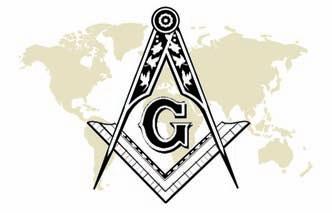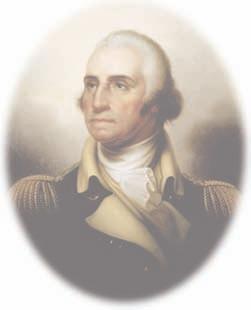
10 minute read
Grand Master’s Homecoming
Grand Master’s
Homecoming
George R. Adams ,
PGM
Most Worshipful Grand Master, Most Worshipful Past Grand Masters, Right Worshipful Grand Lodge Officers, Worshipful Masters, and brethren all. It is an extreme privilege for me to stand before you on this most special celebration for our Grand Master, for Mehr Lodge No. 90 and for the Grand Lodge of the District of Columbia.
Tonight we pay homage to a very special brother, our Grand Master, Most Worshipful Brother Robert B. Heyat, 33º at his homecoming to Mehr Lodge No. 90. And as part of our celebration, we acknowledge with deep gratitude his tremendous contribution to the growth of Freemasonry in our jurisdiction since his arrival on the scene in the late 1980’s.
It is good for Masons to review the chapters of their heritage. Like the ancient elders who sat around the ceremonial fire recounting tribal stories of past heroes, let us recount the story of a most important chapter in the history of our Grand Lodge, a history which began in a far away distant land… Iran. The story begins with a group of highly educated, Godfearing Freemasons who diligently practiced their Freemasonry in their Persian home. These Freemasons counted among their ranks very prominent individuals, authors, businessmen, leaders, including prime ministers , senators and justices of the Iranian supreme court, Robert’s father- a professor, an economist, and philosopher-poet, as well as MWB Robert B. Heyat. As fate would have it, the winds of change blew over Iran and a ruthless gang of religious tyrants forced these Freemasons into exile. In many cases they were expelled under penalty of death if they returned to their homeland. Thus, these Freemasons found themselves isolated from their country with no place to practice their Masonry. Among those who were forced to leave their country and choose life in exile were MWB Christopher Sahakian, MWB Mansour Hatefi, and our Grand Master, Robert B. Heyat who came to America to find a new home. Like our ritual, these Persian Masons, who later became U.S. citizens, “traveled in foreign countries”, with no lodges to pay them their Master’s wages. Imagine if you will the emptiness of your life without the many blessings derived from your Masonic experience. I think you would agree that your life would be incomplete without the rich teachings and brotherly love that we share as Freemasons.
The part of this story that relates to our Grand Lodge, began in the late 1980’s. With the decline in membership experienced across the board in Freemasonry, there were lodges in the District of Columbia that were struggling to survive. Faced with the need to find a home to practice their Craft, one solution to the problem seemed to be to have these Persian brethren join an existing local lodge in need of new members.
This was tried, but for the most part it was an unsatisfactory solution. Without the cultural template of Persian Freemasonry, experienced in their homeland, it just wasn’t the same for these brethren. There was something missing from the formula for creating a bilingual lodge. The transplant into an existing D. C. lodge for the most part did not take. What was needed for our Iranian brethren was to have a lodge where they could practice their Freemasonry as it was experienced in their homeland, using the emulation ritual with which they were familiar and to be able to congregate using their own language. This is where most MWB Robert came on the scene with his vision and leadership. He recognized the need for a culturally diverse lodge operating in tandem with other lodges in the District of Columbia and at his own expense, and
using his many contacts in the Iranian community brought together these Iranian Masons with the help of MWB Hatefi and MWB Sahakian and many others to form a lodge under dispensation, Mehr Lodge U/D. To the credit of then MWB Charles S. Iversen, the matter was brought before the Grand Lodge for a vote and by a close majority, Mehr Lodge was given a dispensation to operate as a lodge in the District of Columbia using emulation ritual and allowing the lodge the freedom to deliver the degrees in Farsi. I was then Senior Grand Warden and was commissioned by MWB Iversen to head up the dispensation committee for Mehr Lodge and report to the Grand Lodge on the progress of this lodge. My first memory of Mehr Lodge was at Robert Heyat’s magnificent home in Kenwood. I recall being asked to say a few words that afternoon on the back porch of Robert’s home which overlooked his spacious backyard accented by a swimming pool and other amenities. At that time I alluded to the symbol of the Persian rug to describe what I saw as the vision of what we now call our bilingual lodges. I remarked that it takes many diverse threads and colors to achieve the beautiful design of the Persian rug and a weaver to draw the threads together in a beautiful and harmonious pattern. Robert was the weaver; the bilingual lodges were the threads. The members of Mehr Lodge were excited to have the opportunity to show our Grand Lodge that they were worthy of its trust. Mehr Lodge worked extremely hard that year to make sure that they performed with the highest standard possible in all aspects of their Masonry. The lodge became a model to be emulated by others in the jurisdiction and the man that we honor tonight was the principal pillar in the process along with MWB Hatefi, MWB Sahakian and others. Using his own personal resources, contacts and organizational skills he marshaled the brethren of the lodge into a cohesive unit of grateful, hard working brethren.
At the next Grand Lodge Annual Communication, Mehr Lodge was voted in by our brethren with less than a handful of dissenting votes marking a watershed event for Freemasonry in the District of Columbia. The admission of Mehr Lodge was the beginning of the construction of a multi-cultural bridge of tolerance and understanding in our nation’s capital and throughout the world. Its existence was proof that our Grand Lodge could accept as brethren those who practiced a different ritual and spoke a different language, regardless of their race, politics or religion. The acceptance of Mehr Lodge into our Grand Lodge was a statement that the District of Columbia practices what it preaches, namely universal brotherhood and brotherly love.
I happen to believe that when our heart is sincere and our motives pure, God directs our journey for our highest good. In this case, through the circuitous route of New York and Massachusetts, God brought MWB Robert B. Heyat to our door. The word Mehr means “Light”. Using the prototype of Mehr Lodge #90 as a model, the outreach of universal brotherhood has extended over the past years from our nation’s capital throughout the world spreading the message of “Light and Brotherly Love”, the message that we can live with our fellow man in peace and harmony if we adhere to a common idealism.
Since the advent of Mehr Lodge, the number of bilingual lodges has increased tremendously. Let me list some names of lodges whose existence directly or indirectly has been influenced by the breakthrough caused by the precedent of the Mehr/Heyat prototype: • Mehr Lodge #90 • Alianza Fraternal Americana Lodge No. 92 • La France Lodge No. 93 • Hayastan Lodge No. 94 • Massis Lodge No. 99, forming one of the three lodges incorporating the Grand Lodge of Armenia • Star Spangled Banner Lodge, Paris, France • Fiat Lux Lodge No. 1717 • Sojourner Kilwinning Lodge No 1798 • Nur Lodge No. 2000 • Italia Lodge No. 2001 • Azerbaijan Lodge No. 2002
continued on page 19
GRAND MASTER HOMECOMING Grand Master’s H
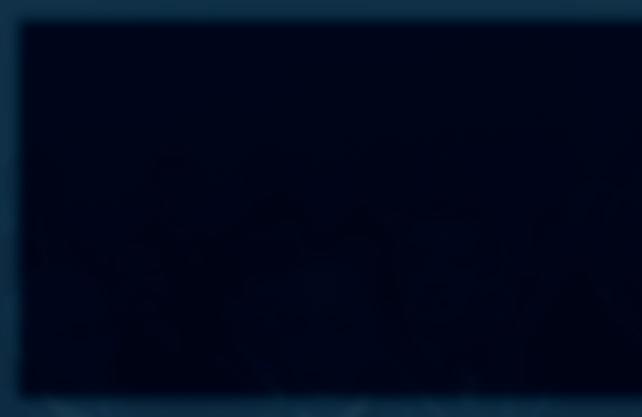

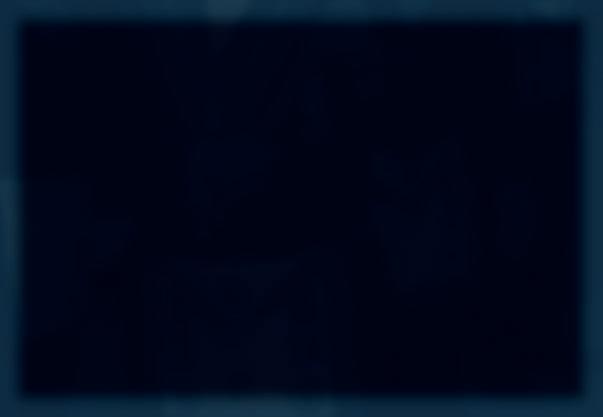

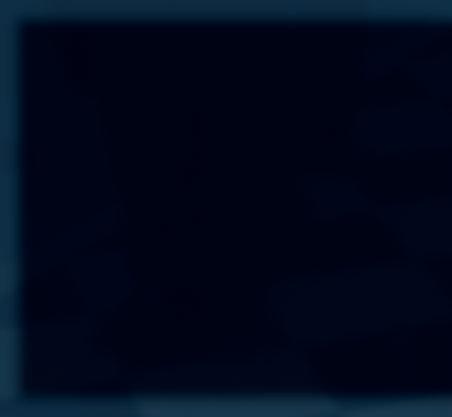
GRAND MASTER HOMECOMING Homecoming 2007


Mehr Lodge No. 90 hosted the Grand Master’s Homecoming on Friday, January 26, 2007. The evening, which was very well attended by Grand Lodge Offi

cers, Past Grand Masters and other distinguished Brethren, included thoughtful remarks, gracious presentations and a sumptuous Persian buffet.


George Washington, the Mason
continued from page 9
remembered occasion was on September 18, 1793, a big day in American history. It was a festive occasion with flags flying, splendid music, and drums. Happy spectators strolled about the Capitol grounds. Masons were everywhere, wearing their symbolic regalia. The day was set aside to lay the cornerstone of our new Capitol building. President Washington was wearing his Masonic apron, which had been lovingly knitted by Madame Lafayette. Her husband, the Marquis, was a Mason who belonged to the Lodge of Saint-Jean de la Candeur in France. The president, wheeling a trowel, slapped a load of mortar down upon the cornerstone, thus signifying that the Capitol would be built. His Lodge, Alexandria Lodge No. 22, had organized the parade with the president serving as master pro tem for the day. Masonry transformed the social landscape of the early republic. It was a republican institution, and repudiated the old monarchal hierarchy of family birth and favoritism. Instead it substituted a new order that rested on “the real Worth and personal Merit” of an individual and “brotherly affection and sincerity.” The lodges were a means in which men who differed in everyday affairs, occupation, social rank and even religion could all meet amicably and converse sociably together. Strangers, removed from their families and neighbors, and coming together in brotherly love, seemed a vindication of the “Enlightenment” principle, of love flowing outward from the self. So a Mason could find himself liberated by belonging not to one place but to places without number, and in almost every corner of the globe, and to which, by a kind of universal language, he could make himself known and from whom he could, if in distress, be sure to receive relief and protection. This concept of cosmopolitanism was the “Enlightenment” dream, and this attitude brought solace to the soldiers of the Continental Army, particularly those who were Masons coming from all the colonies, because they felt a brotherhood. Their joint suffering was for a noble purpose. Troops felt that they were all together in this crusade for freedom. The appeal to fight for this noble cause prevailed among both officers and men alike. Without Masonry as a binding force, the men might well have given up the struggle and gone home. Here is a summation of those sentiments, which enticed George Washington to revere the institution of Freemasonry: “Flattering as it may be to the human mind, and truly honorable as it is to receive from our fellow citizens testimonies of approbation for exertions to promote the public welfare, it is not less pleasing to know that the milder virtues of the heart are highly respected by a society whose liberal principles must be founded in the immutable laws of truth and justice. To enlarge the sphere of social happiness is worthy of the benevolent design of a Masonic institution; and it is most fervently to be wished that the conduct of every member of the Fraternity, as well as those publications that discover the principles which actuate them may tend to convince mankind that the great object of Masonry is to promote the happiness of the human race.” ■
James P. Hodges, Ph.D.
One of America’s foremost authorities on Revolutionary War history and the life of George Washington, is a motivational speaker, member of the National Speakers Association, and several historical and patriotic groups. He is the recipient of the “George Washington National Honor Award” from the “Freedoms Foundation at Valley Forge” With his upcoming book, Leadership by George true stories of George Washington’s ethical leadership principles come alive through Jim’s motivational speeches. Brother James Hodges is a long time member of our Benjamin B. French Lodge No. 15. For more information visit: www.leadershipbygeorge.com


